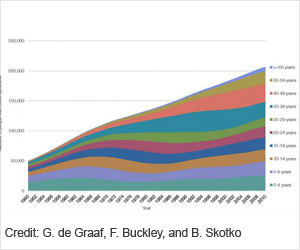A three-year-old baby, born with Down Syndrome, had complaints of delayed milestones, lack of voice, cardiac defects, slanted eyes and no neck holding capacity.

‘A three-year-old baby - born with Down Syndrome having subnormal motor skills - has shown improvement after undergoing stem cell treatment.’





Rahul (name changed) was born preterm due to premature rupture of membranes (PROM) and was kept in intensive care unit (ICU) for two days due to respiratory distress. Following diagnosis of Down Syndrome and subnormal motor skills, the patient was shown to a city-based stem cell expert.
The baby was admitted with complaints of delayed milestones, lack of voice, cardiac defects, slanted eyes and with no neck holding capacity.
According to the doctor, the patient underwent two sessions of stem cell therapy of which the first session lasted approximately three months.
"By the end of three months, the muscle tone was better in all limbs. He (patient) had started babbling and crawling. He was social and was able to recognize his near ones after the first session. Better outcomes were observed with no adverse events," said Geeta Shroff, stem cell expert with city-based Nutech Mediworld.
Advertisement
"Embryonic stem cell lines used during the treatment have been derived from a single spare fertilized egg that donated during a IVF cycle. This fertilized egg would have otherwise been medical waste," Shroff said.
Advertisement
Source-IANS














